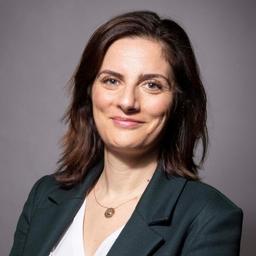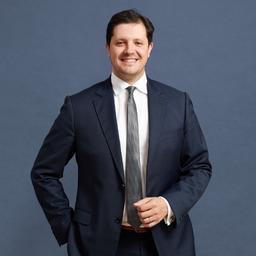Funds Europe gained comments from Luxembourg experts about living and working in the Grand Duchy and about regulation – such as the revised ELTIF rules.
Eliane Meziani, senior advisor for public affairs, Caceis
If there’s one regulation to watch for this year, it’s this one.
 SFDR’s level 2 measures provided much-needed clarification. It is clear that investment managers must report any negative impacts their investment decisions cause or any changes to the sustainability characteristics of their product range by responding to the following: Have you taken these impacts into account? How? And if not, why not? Continued SFDR classification under Article 8 or 9 (funds integrating sustainability into their investment process) must regularly justify their status through information documents and the prospectus.
SFDR’s level 2 measures provided much-needed clarification. It is clear that investment managers must report any negative impacts their investment decisions cause or any changes to the sustainability characteristics of their product range by responding to the following: Have you taken these impacts into account? How? And if not, why not? Continued SFDR classification under Article 8 or 9 (funds integrating sustainability into their investment process) must regularly justify their status through information documents and the prospectus.
Depositaries’ non-financial duties concerning Article 8 and 9 funds are not explicitly addressed. However, SFDR establishes two baseline controls for investment managers: the minimum investment commitment to meet Article 8 or 9 classification, (a percentage), and a minimum level of sustainable investments (especially for Article 9 classification) and the depositary has a role to play which is as yet undefined by regulators. Reporting templates appended to the SFDR Level 2 contain data fields for these controls and must be filed with the depositary since 1st January. Nevertheless, investment managers and asset servicing companies still require further clarification on the depositary’s monitoring duties in terms of granularity, frequency, and how to handle funds with an eco-label, such as ISR, Greenfin and Finansol. And as always, quality and accessibility of the data remain essential to performing sufficient depositary control.
Shany Venon, head of institutional investors client lines Luxembourg, Ireland and the Channel Islands, securities services, BNP Paribas
Why live and work in Luxembourg?
 When I first mentioned to my children that we were moving to Luxembourg, they seemed unsure. The first question they had was whereabouts this country was exactly. They also wanted to know if there was a national football team. However, their attitudes soon shifted when they discovered Luxemburg had sports facilities, outdoor activities, a diverse culture, and that speaking numerous languages was commonplace.
When I first mentioned to my children that we were moving to Luxembourg, they seemed unsure. The first question they had was whereabouts this country was exactly. They also wanted to know if there was a national football team. However, their attitudes soon shifted when they discovered Luxemburg had sports facilities, outdoor activities, a diverse culture, and that speaking numerous languages was commonplace.
As well as being family-friendly, the constant evolution of the fund industry in Luxembourg brings numerous professional opportunities to explore, along with a great work-life balance. Reflecting the cosmopolitan nature of the country, companies in Luxemburg benefit from a range of ideas and values, ensuring they are constantly evolving and always paving the way for innovation.
Georg Lasch, offshore sales specialists for Luxembourg, Ireland and the Channel Islands securities services, BNP Paribas
Why 2023 will be the year of the ELTIF?
 Finally. The newly voted European Long-Term Investment Fund (ELTIF) 2.0 regulation is suitable for retail distribution.
Finally. The newly voted European Long-Term Investment Fund (ELTIF) 2.0 regulation is suitable for retail distribution.
Broadening the scope of eligible assets, adjusting the diversification requirements for retail ELTIFs and reducing the minimum proportion of EU Long Term investments will allow ELTIFs to offer liquidity to retail investors.
The time is right. Demand from retail investors is high, and as institutional investors have slowed down investments in real assets, the asset management industry will grasp the opportunity to explore the retail distribution market for alternatives through the ELTIFs.
Bryan Fage, head of sales and relationship management, and Laurent Marochini, head of innovation, Societe Generale Securities Services Luxembourg
Is a crypto currency a security, commodity or currency?
 Since the birth of Bitcoin, more than 22,000 cryptocurrencies have seen the light of day. Many hold characteristics attributable to currencies, commodities and securities.
Since the birth of Bitcoin, more than 22,000 cryptocurrencies have seen the light of day. Many hold characteristics attributable to currencies, commodities and securities.
There are three features of money: a unit of account, a medium of exchange and a store of value. Bitcoin fulfils all three. However, due to its creation process through mining, it can also be considered a commodity. Utility tokens also share characteristics with commodities; a means of accessing services such as decentralized applications or producing digital assets. Just as gold can be used to forge jewellery, Ether can be used to mint NFTs. Finally, considering the definition of the Howey Test for security classification, “investment of money in a common enterprise with a reasonable expectation of profits to be derived from the efforts of others”, many utility tokens fall in this category, serving as rewards for the success of real-world enterprises.
Regulators are investigating the reclassification of some cryptocurrencies, but one size will not fit all. The upcoming regulations aimed at setting a clear framework will give us more clarity.
Jevgeniy Nesch, partner – Investment Management, AKD
How can AIFs become retail?
 Certain Luxembourg laws provide already now for possibilities to accept retail investors and the democratisation of alternative fund products has led to positive developments in this area. At the EU level, the ELTIF II is expected to further open the door for retail investors in the alternative funds market. Further updates to the AIFMD and/or the MiFID on the applicability of the marketing passport to sophisticated investors who may not necessarily fall under the definition of professional investors (so-called semi-professional investors) would further boost the retailisation of the AIFs industry.
Certain Luxembourg laws provide already now for possibilities to accept retail investors and the democratisation of alternative fund products has led to positive developments in this area. At the EU level, the ELTIF II is expected to further open the door for retail investors in the alternative funds market. Further updates to the AIFMD and/or the MiFID on the applicability of the marketing passport to sophisticated investors who may not necessarily fall under the definition of professional investors (so-called semi-professional investors) would further boost the retailisation of the AIFs industry.
Virginie Leroy, Partner – Investment Management, AKD
If there’s one regulation to watch for this year, it’s this one.

The AIFMD has been shaping the AIF market since 2011. Today market participants, but also EU legislators, recognise the general well-functioning and efficiency of the AIFMD framework. The EU legislators entered into a trialogue on the AIFMD II, and a final draft is expected still this year. While it is not likely that AIFMD II will bring structural changes but rather enforce the positive effects of the AIFMD by fine-tuning provisions, i.a., on delegation, loan origination, liquidity management, depositaries, it should be monitored what impact AIFMD II will have on the AIF industry.
Neil Wise, head of sales, relationship management, Clearstream
Why 2023 will be the year of the ELTIF?
 We are pleased to see that the EU understood that the restrictions in the initial ELTIF regulation limited the growth potential of private markets. Opening the European market for private markets via ELTIFs to retail investors will not only generate inflows for Asset Managers but also help Distributors to provide a risk diversification component to their investor clients in times of a challenging market environment. This is something we foresaw in our efforts to reduce barriers in the fund industry when we acquired Citco Global Securities Services in 2014 to allow our clients to make investments in alternative investment funds. To serve the increasing democratization of private markets, we have onboarded various ELTIFs in our Clearstream Funds Services ecosystem for execution and distribution. We are looking forward to supporting the funds industry on the ELTIF 2.0 journey by providing simplified access for distributors into the newly constructed and rising product range that Asset Managers will be creating over time to fulfil investor needs. Part of this journey is to work with the asset managers to ensure that the ELTIFs are operationally as easy to invest in as regular UCITS funds.
We are pleased to see that the EU understood that the restrictions in the initial ELTIF regulation limited the growth potential of private markets. Opening the European market for private markets via ELTIFs to retail investors will not only generate inflows for Asset Managers but also help Distributors to provide a risk diversification component to their investor clients in times of a challenging market environment. This is something we foresaw in our efforts to reduce barriers in the fund industry when we acquired Citco Global Securities Services in 2014 to allow our clients to make investments in alternative investment funds. To serve the increasing democratization of private markets, we have onboarded various ELTIFs in our Clearstream Funds Services ecosystem for execution and distribution. We are looking forward to supporting the funds industry on the ELTIF 2.0 journey by providing simplified access for distributors into the newly constructed and rising product range that Asset Managers will be creating over time to fulfil investor needs. Part of this journey is to work with the asset managers to ensure that the ELTIFs are operationally as easy to invest in as regular UCITS funds.
Lorna Glynn, managing director, Paragon Customer Communications
If there is one regulation to look for this year, it’s this one.

The FCA Consumer Duty is a crucial regulatory development for financial services firms this year. It places greater responsibility on companies to act in the best interests of their customers, avoid harm, and provide services that meet their needs. For firms focused on customer experience, it offers an opportunity to demonstrate a commitment to ethical conduct and build stronger relationships with clients. By aligning business practices with the principles of Consumer Duty, companies can create a reputation as customer-centric organisations that prioritise transparency, fairness, and accountability.
The role of Fund Board in ESG
The Fund Board plays a crucial role in promoting ESG considerations within investment decision-making. One often-overlooked aspect of this responsibility is the impact of investor communications on a company’s carbon emissions. By engaging with companies on ESG issues, Fund Boards can encourage better reporting and disclosure, which in turn can lead to improved environmental performance. Clear communication can help companies understand investor expectations and provide a roadmap for reducing their carbon footprint. Ultimately, the Fund Board’s engagement on ESG issues can help drive positive change and support a more sustainable future.
Henning Swabey, head of growth, Fundcraft
Is size a threat to a third-party ManCo? Can ManCos scale up their business, or are their natural limits?
 Technology and digitisation are the enablers of a ManCo’s responsibilities as they allow seasoned experts to get faster access to the information they need to make better decisions. Third-party ManCos offer a solution to Asset Managers who either don’t have sufficient levels of scale or expertise or who want to enjoy an additional level of governance and oversight to their funds by working with, thereby allowing them to focus on generating alpha and raising capital. To scale efficiently, it’s critical that Mancos make a significant investment in technology and digitisation.
Technology and digitisation are the enablers of a ManCo’s responsibilities as they allow seasoned experts to get faster access to the information they need to make better decisions. Third-party ManCos offer a solution to Asset Managers who either don’t have sufficient levels of scale or expertise or who want to enjoy an additional level of governance and oversight to their funds by working with, thereby allowing them to focus on generating alpha and raising capital. To scale efficiently, it’s critical that Mancos make a significant investment in technology and digitisation.
How can AIFs become retail?
The retailisation of AIFs has already begun. Fund of Funds offers the opportunity for smaller investors to get access to AIFs by pooling their investments with others. ELTIF 2.0 will also enable investors with less capital to benefit from alternative strategies. To successfully roll out retailisation, the industry will need 2 things: Education to allow retail investors to understand the risks and limitations of illiquid asset classes and technology to cope with the demands of a large number of investors with smaller tickets.
© 2023 funds europe





